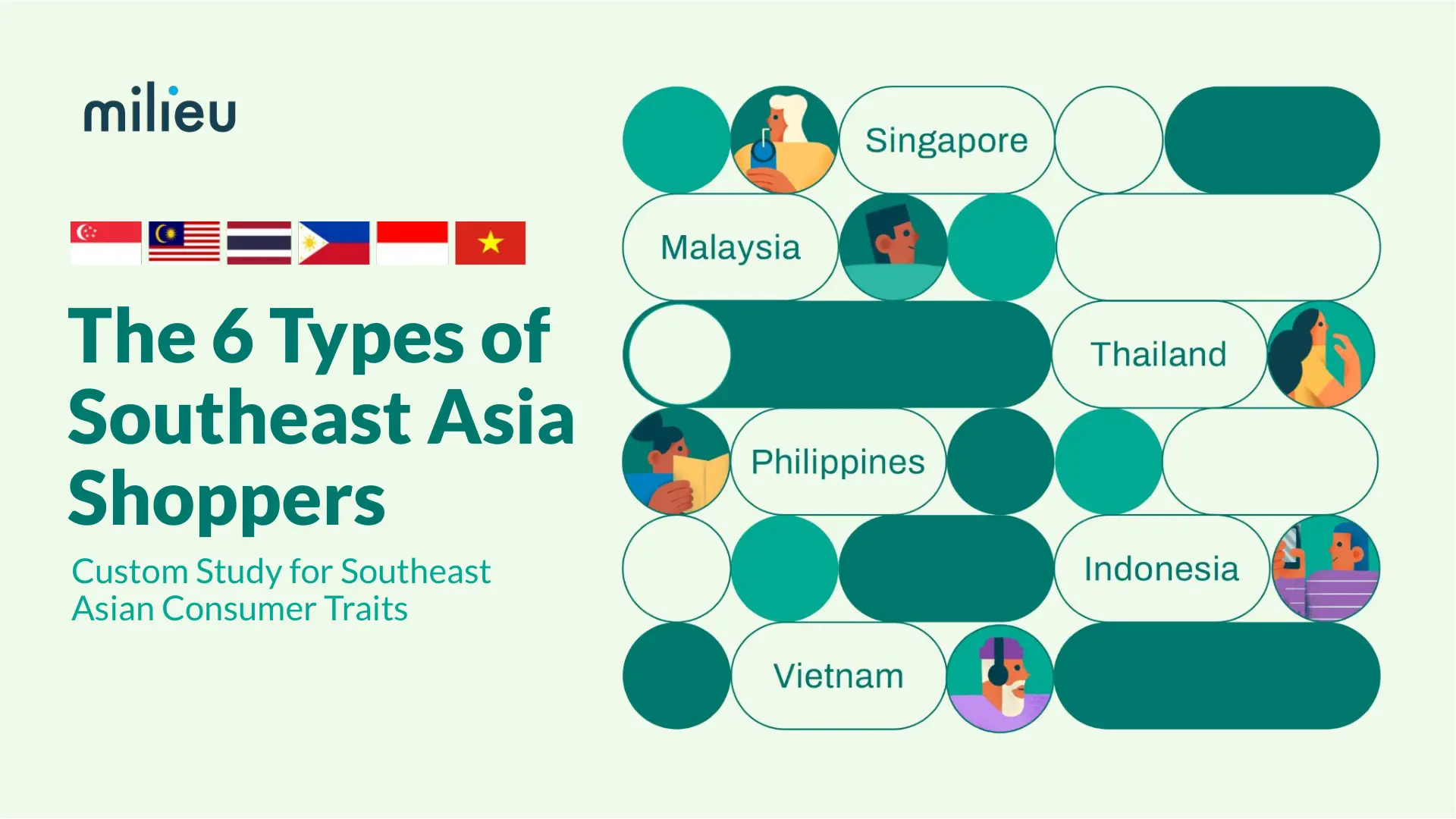Vietnam’s online shoppers demand speed and reliability in 2025

Vietnam’s online shoppers demand speed and reliability in 2025
Vietnam’s e-commerce story is one of Southeast Asia’s most compelling. In 2024, the country recorded that its annual online retail sales surpassed USD 25 billion. And growth is not slowing down - by 2025, 65% of Vietnamese shop online at least once a week, compared to the Southeast Asia average of 50%, putting them among the most active online consumers in the region. However, they are also more discerning than ever, with higher expectations from sellers and e-commerce platforms around delivery, product quality, and customer experience.
Our latest study highlights how Vietnamese shoppers are driving this digital retail high while also revealing clear pain points that businesses must address. When compared to regional averages across Southeast Asia, Vietnam stands out for its higher shopping frequency, stronger platform loyalty, and greater willingness to pay for better service.
Vietnam shoppers are buying more and expecting more than their neighbors
In the past six months, 41% of Vietnamese consumers reported shopping online more frequently and spending more, almost double the regional figure of 25%. By contrast, only 12% in Vietnam said they are spending and shopping less, compared to 21% regionally. This reflects not only stronger consumer confidence in digital retail but also a faster-evolving market. However, higher activity also brings higher expectations: frequent shoppers are less tolerant of delays, errors, or poor service.
Increasingly, Vietnamese consumers are driven by more than just price. While 64% cited discounts and 55% cited low/free shipping as top motivators, product variety matters more here than in the wider region (52% vs. 47% regionally). Additionally, newer shopping formats and tools are also driving decisions, with half (50%) saying livestream influences their purchases (vs. 41% regionally), while flexible payment options like Buy-Now-Pay-Later (38%) and AI-driven product recommendations (32% vs. 24% regionally) are also gaining traction. Together, these trends show that online platforms in Vietnam are evolving into destinations for discovery, convenience, and engagement - not just savings.
Shoppers expect platforms to enforce and uphold service quality, even among logistics partners
Despite the enthusiasm for online shopping, Vietnam’s logistics ecosystem faces familiar challenges. Delivery delays (37%) and slow shipping times (34%) remain the most common complaints, alongside damaged or missing packages (32%). While these figures are slightly lower than the regional averages, when issues occur, Vietnamese shoppers are more likely than their peers to take them up with the platform: 25% would switch to another platform, while 50% would escalate complaints to platform customer service—both higher than regional counterparts.
Crucially, shoppers make little distinction between platforms and their courier partners. They expect platforms to enforce delivery standards, regardless of how relationships with third-party logistics providers are managed. In Vietnam, 90% of consumers say marketplaces should enforce delivery standards, compared to 88% regionally. Further emphasizing this insight, 79% of shoppers in the country say the brand name of the courier does not matter, as long as deliveries are reliable, compared to 63% regionally.
Service quality and reliability matter more than cost
When asked what improvements they expect most, Vietnamese consumers prioritised reliability (53%) and better handling of packages (51%), above cost-related concerns like lower delivery fees (45%). Regionally, by contrast, lower fees (56%) and faster delivery (55%) dominated shopper expectations.
Transparency also matters. One in two shoppers would abandon their cart if hidden fees appeared during checkout. Nearly half would walk away from sellers with no reviews (49%) or unclear return policies (46%).
Yet many are willing to pay more for peace of mind. 7 in 10 Vietnamese shoppers are ready to spend more or increase their purchases from sellers deemed to provide reliable service, consistent delivery, and convenient enhancements such as flexible returns and exclusive deals. On top of that, over half (55%) would spend more with sellers who offer good service, while 40% are willing to pay extra for consistently fast deliveries. On the flip side, 1 in 3 would stop buying from sellers after poor experiences like late deliveries or unclear refund policies, sending a clear message to sellers that bad service will result in losses. Drilling specifically into this behavior, 40% indicated they would completely stop buying from sellers not offering refunds, and 23% would stop after experiencing unreliable deliveries.
In short, consumer expectations are increasingly shifting toward a demand for seamless shopping and dependable delivery experiences, and businesses can no longer afford to sacrifice one over the other.
Returns and refunds: assurance, not exploitation
Returns and refunds are central to the online shopping experience in Vietnam. Nearly half (46%) would abandon a purchase if no return policy is offered. At the same time, 31% are willing to pay more for flexible return options, treating them as an assurance of quality.
Importantly, the data also reveals that shoppers, as they demand flexibility in return policies, use it responsibly. Over half (51%) only use them when there is a serious issue, such as a damaged, wrong, or missing item, and only 9% admit to using them whenever possible. Their most recent experiences reinforce this point: 60% of returns were for defective or incorrect products, and 23% for missing or undelivered items. Only 12% were due to a change of mind.
This makes it clear that Vietnamese consumers turn to return/refund policies primarily as a safeguard when sellers or platforms fail to deliver—not as a loophole for free trials or casual returns. For businesses, this means that returns should be viewed not as a cost risk but as essential in offering peace of mind to drive brand loyalty.
What businesses and sellers should do
To capture Vietnam’s fast-growing online audience, businesses must go beyond discounts and promotions. The data shows that better customer experiences through buyer-centric policies and innovations directly influence purchase decisions, repeat sales, and loyalty - a key insight for organisations.
- Build reliability into every step: Invest in dependable logistics, accurate product information, and secure packaging. For shoppers who are buying multiple times a week, consistency is more valuable than speed or price.
- Turn convenience into loyalty: Clear fees, responsive customer service, and transparent refund policies transform one-time buyers into repeat customers.
- Innovate the experience: Shoppers in Vietnam are discovery-driven. Product variety, livestream shopping, BNPL, and AI recommendations are increasingly essential in making platforms feel curated, helping shoppers navigate the abundance of choice.
The opportunity is clear: in Vietnam’s fast-growing e-commerce market, sellers that strike the right balance between affordability, reliability, and innovation will win more than just sales - they’ll earn lasting trust. To capture this momentum, platforms need to deliver end-to-end assurance, creating a seamless and dependable experience for both buyers and sellers. From attractive deals to reliable logistics, flexible options, and peace of mind, shoppers are setting higher expectations. And importantly, they’re ready to pay a premium for it.

Author
Milieu Team
At Milieu, we’re a team of curious minds who love digging into data and uncovering what drives people. Together, we turn insights into stories—and stories into action. We also run on coffee, deadlines, and the occasional meme.
Latest Insights

.avif)




